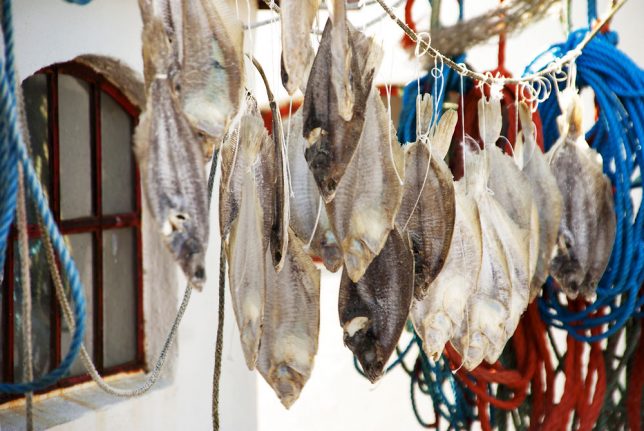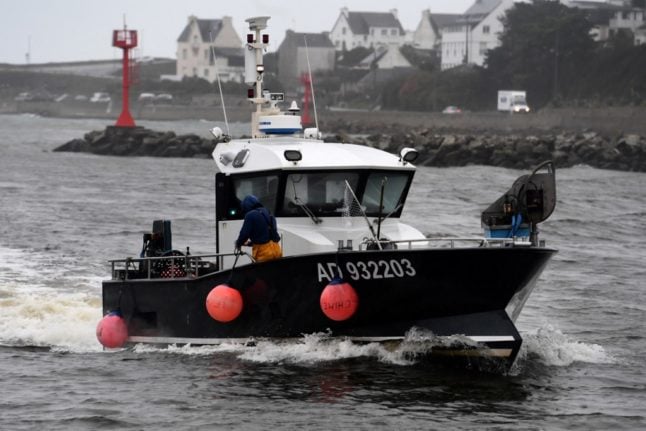 Griffin Carpenter is an environmental economist based in Copenhagen and works for the New Economics Foundation, a think tank working to build a new economy.
Griffin Carpenter is an environmental economist based in Copenhagen and works for the New Economics Foundation, a think tank working to build a new economy.FISHING
OPINION: A blemish on Denmark’s environmental record
A Copenhagen-based environmental economist accuses Denmark of neglecting scientific advice and undermining efforts to combat overfishing.
Published: 7 December 2016 11:11 CET

The author says that Denmark's position that it is acting in support of small fishing fleets "doesn't hold water". Photo: Iris
Denmark is often lauded as a world leader on environmental issues, and for good reason. From food waste to renewable energy, Denmark sets an example for others to follow.
Yet recently a failure has emerged that may blemish Denmark’s reputation: overfishing. Denmark’s fishing minister, Esben Lunde Larsen, who will remain in his position in the new government, is determined to fight scientific advice.
As Ed Stern from the Fish Secretariat detailed in The Local last month, every year the International Council for the Exploration of the Seas (ICES) provides scientific advice on the maximum amount of fishing that should take place to allow different species to rebuild in line with the EU’s Common Fisheries Policy.
For cod in the Western Baltic, the advice for 2017 fishing limits did not make for happy reading. The number of cod is declining so rapidly that ICES advised an 87 percent cut in next year’s cod quota – the amount of fish that can be caught, in total.
While other countries backed the advised cut, the large-scale fishing sector in Denmark advocated a cut of only 20 percent – a proposal backed by Larsen.
At the annual Baltic quota meeting in October, ministers emerged in the early hours of the morning to announce that a compromise position of 56 percent had been agreed. Taken together with Baltic fishing quotas for herring, salmon, herring, sprat and plaice, a new report I authored calculates that Denmark is the country with the fishing quota set the highest above scientific advice. This is one environmental league table that Denmark should avoid topping.
Larsen defends the government’s position as acting in support of the struggling small-scale fishing fleet, but this argument doesn’t hold water.
As the profits diverge amongst the large and small-scale fleet, a smaller amount of total quota but with better distribution to the small-scale fleet could meet both the short-term financial challenge in the industry while also improving the long-term sustainability of the stock. Studies have shown that the economic benefits of rebuilding fish stocks to levels that support larger catches are greatest when fish stocks are rebuilt as fast as possible, versus a slow (and risky) recovery.
On fishing at least, the Americans have a good solution: don’t let politics override scientific limits. In the United States, fish stocks are on a solid path to recovery: credit is due to a policy whereby scientifically determined fishing limits are legally enforced. The political process can alter quotas, say to maintain stability, but only at levels below the scientific limit.
On December 12-13th, the quota negotiations move to the North Sea and North Atlantic, where Denmark will again be present at the table. With quota reductions proposed for North Sea herring, there are concerns that Denmark may again emerge to fight against scientific advice.
The Common Fisheries Policy has in recent years started to work in addressing overfishing. It is hugely disappointing that Denmark is the country that’s doing the most to hold it back.
 Griffin Carpenter is an environmental economist based in Copenhagen and works for the New Economics Foundation, a think tank working to build a new economy.
Griffin Carpenter is an environmental economist based in Copenhagen and works for the New Economics Foundation, a think tank working to build a new economy.
Url copied to clipboard!


 Please whitelist us to continue reading.
Please whitelist us to continue reading.
Member comments